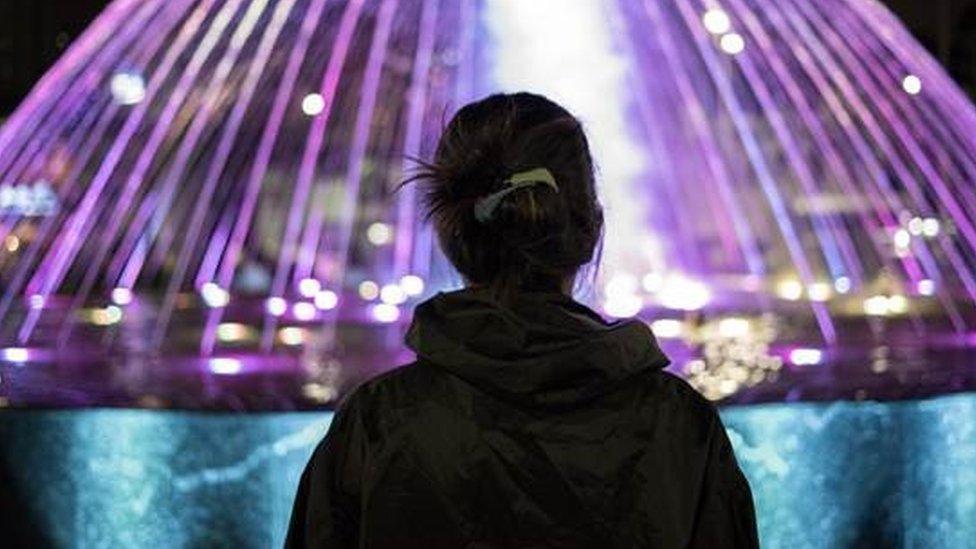Rodrigo Duterte: The provocative but popular Philippine strongman
- Published
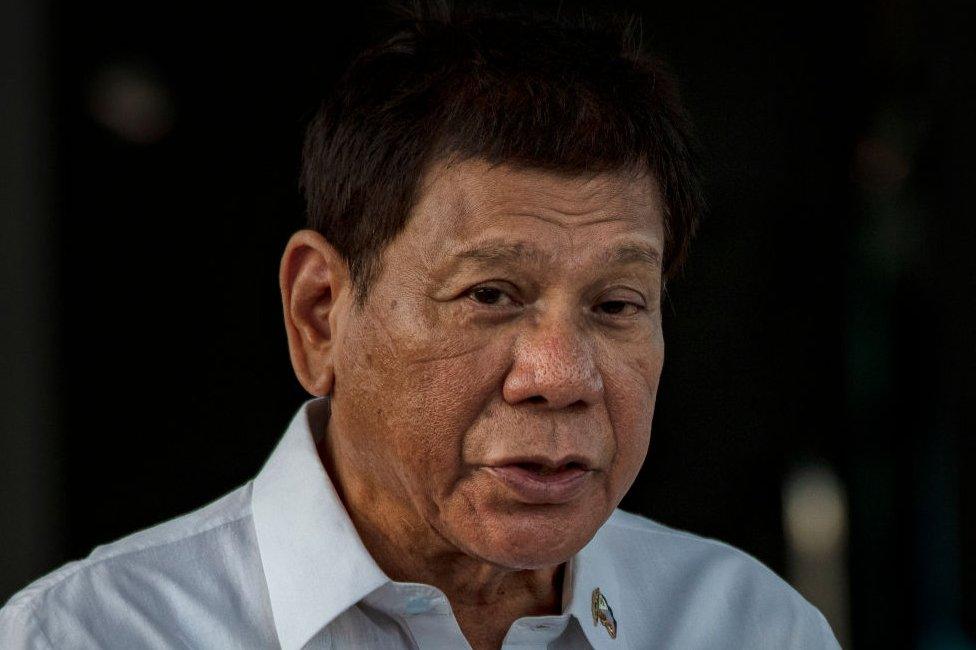
Rodrigo Duterte is both hugely popular and controversial
Former Philippine president Rodrigo Duterte once infamously likened himself to Hitler, declaring he "would be happy to slaughter" the millions of drug addicts that he said was destroying his country.
During his presidency from 2016 to 2022, Duterte styled himself as an anti-drug crusader, whose ruthless "war on drugs" killed thousands of alleged dealers and addicts.
His is a contentious legacy. A hugely popular leader, he was also fiercely opposed and criticised for his sexist comments, allegations of sexual abuse and other human rights violations. His anti-drug campaign, in particular, drew international condemnation.
In March 2025, Philippine police arrested the 79-year-old after the International Criminal Court issued a warrant accusing him of crimes against humanity over the deadly campaign. Human rights monitors called it a historic moment that marks the beginning of accountability for the thousands of deaths under his watch.
Days before his arrest, Duterte had said he was ready to go to jail. "If that's my fate, that's fine I will accept it," he had said.
The road to Manila
Rodrigo "Digong" Duterte was born in 1945 in the southern Philippines. His mother was a teacher and his father, a public official, later entered politics and became the governor of Davao. The Dutertes were well-connected to powerful clans in the south, where they still remain popular.
The younger Duterte trained as a lawyer and rose to become state prosecutor, eventually becoming mayor of Davao in 1988.
He has three children with former wife Elizabeth Zimmerman-Duterte, a German-American former flight attendant. One of them is Sara Duterte, the Philippines' current vice-president whom parliament recently voted to impeach.
He has one daughter, Veronica, with his current partner, businesswoman Honeylet Avancena, and had previously claimed to have several girlfriends.
Duterte built his reputation fighting some of the Philippines' biggest problems - crime, militancy and corruption - in Davao during his 22-year term as mayor. Mr Duterte told the BBC he had shot dead three men while he was mayor, confirming an earlier statement.
Human Rights Watch described him as the "death squad mayor". It estimated that more than 1,000 people were killed with no legal process in the city under him.
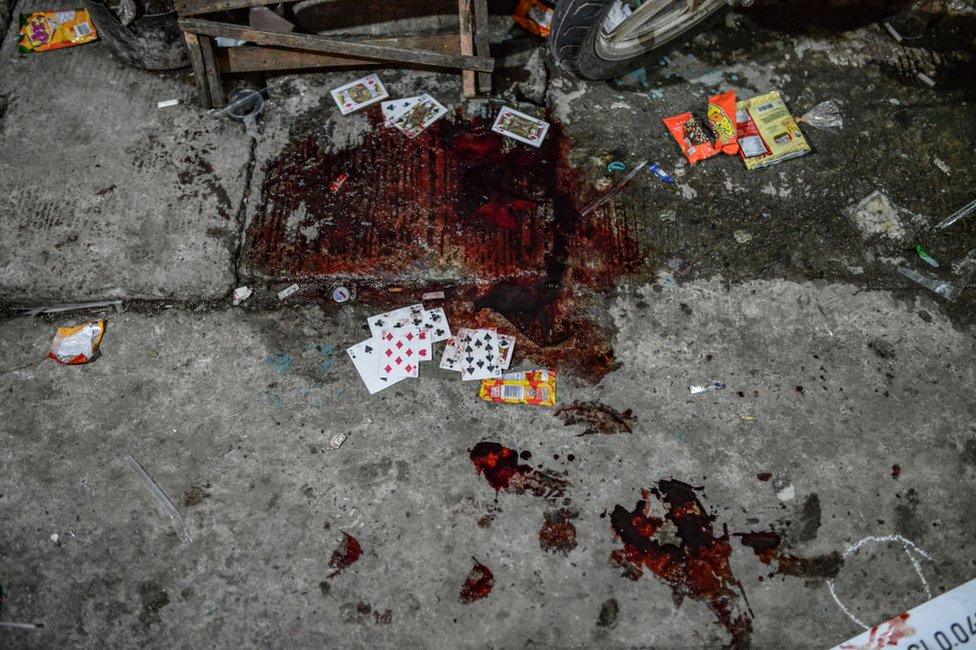
Extra-judicial killings of suspected drug dealers have been a hallmark of Mr Duterte's presidency
It was his track record from Davao that won him nationwide support when he ran for president. And he knew it: "If I make it to the presidential palace, I will do just what I did as mayor. You drug pushers, hold-up men and do-nothings, you better go out. Because I'd kill you," he said at his final campaign rally.
He said in a televised debate that he would kill his own children if they took drugs. And when his son and son-in-law were accused of being involved in drug smuggling, he promised to resign if they were indeed guilty.
His 2016 campaign, the BBC's Howard Johnson wrote, was "littered with obscenities and populist promises but light on details".
He joked about the rape of an Australian missionary murdered in a prison riot in 1989, and proposed mass executions of suspected criminals.
Self-styled as both a socialist and a reformist, he promised sweeping political changes and greater federalism, but critics warned that without reforms at the local level, this would only hand unchecked power to regional clans.
'Duterte Harry'
But what brought him global notoriety was his relentless war on drugs.
He was dubbed "Duterte Harry", a reference to Dirty Harry, the eponymous fictional American detective played by Clint Eastwood who takes the law into his own hands.
The tough-talking leader openly encouraged citizens and the police to shoot and kill suspected drug dealers and users.

Read more about the Philippines under Duterte

The killings, which often involved people being gunned down on the streets or in alleys by unidentified men, sparked outrage and international condemnation - with many families saying the victims had nothing to do with drugs, but were simply at the wrong place at the wrong time.
But his campaign also had the support of many Filipinos who lauded his "tough" stance on street crime. On a particularly brutal night, police said they had killed 32 people in drug raids in the Bulacan province.
Police insisted they only killed in self-defence during drug busts. But families and human rights advocates, furious and aghast, protested that the killings were akin to executions. The dead included teens, and even a mayor and his wife.
In 2017, the entire police force - 1,200 officers - in Manila district was relieved of duty after three boys - 19, 17 and 14 - died after confrontations with the police. A year later, three officers were convicted for the murder of the 17-year-old, Kian Delos Santos. Police accused him of being a drug runner, but his family denied the charge.
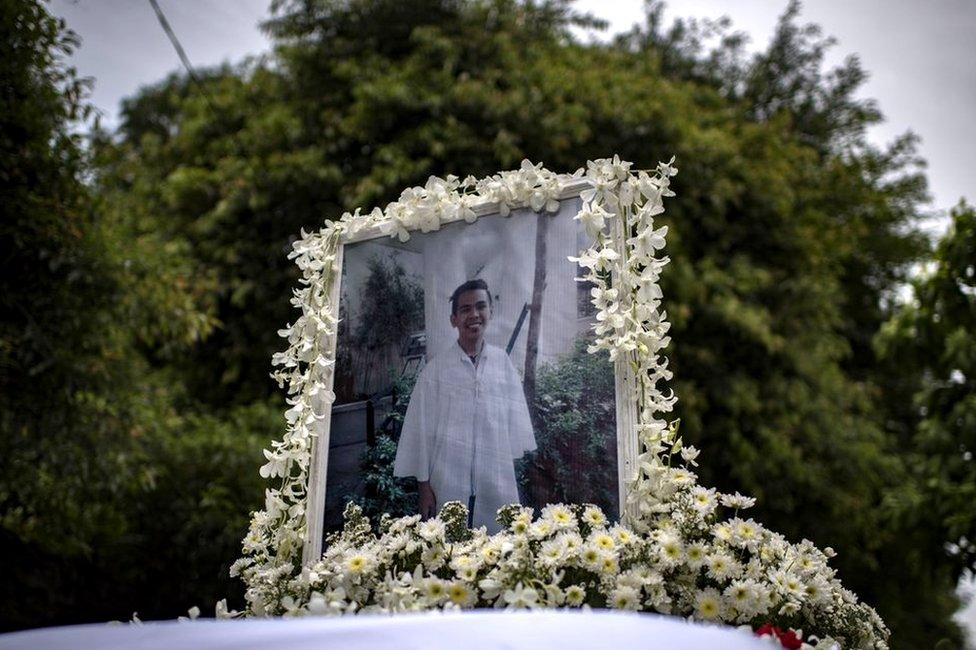
Kian Delos Santos' funeral sparked protests in Manila in 2017
Estimates of how many have died in Duterte's war on drugs vary depending on who is counting. Official figures, as of November 2021, put the number at more than 6,200. But the country's Commission on Human Rights (CHR) said in 2018 that the toll could be as high as 27,000.
Duterte, however, has stood by his brutal campaign: "I will never, never apologise for the deaths," he said in a weekly national address in January 2022.
The blunt 'strongman'
Duterte made global headlines for other reasons too - shockingly blunt and offensive statements, and unpredictable policy shifts, all of which earned him the moniker "Donald Trump of the East".
He threatened to leave the UN, called the EU "hypocritical", and compared his war on drugs to the Holocaust. He referred to former US President Barack Obama as the "son of a whore", but his spokesman said he regretted it when Mr Obama cancelled a meeting. He swore at the Pope for causing traffic jams on his visits, and said God was "stupid" in a largely devout Catholic country.
When he hkissed a female worker on stage, it was described as the "disgusting theatrics of a misogynist president" by rights group Gabriela. Worse, he said he had sexually assaulted a maid when he was a teenager.
His foreign policy, vague during campaigning, continued to flip-flop. He hinted at taking a stronger stance against China over maritime disputes in the South China Sea. He famously said he would ride a jet ski to a disputed island claimed by both countries and stick a flag on it. But as president he pivoted away from the US - a former colonial ruler turned military and economic ally - and closer to China and Russia.
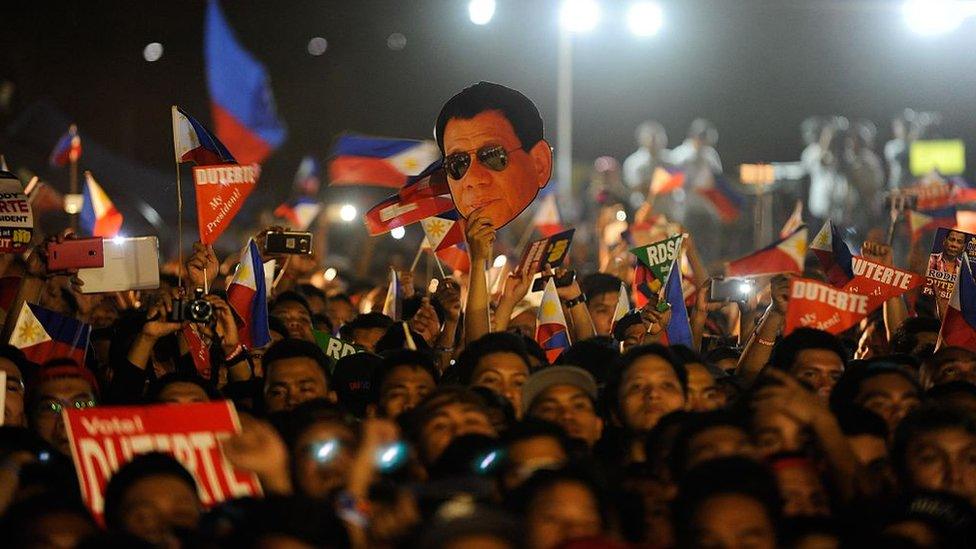
Mr Duterte has retained much of the popularity that propelled him to power
The arduous process of making the Philippines more federal fell to the wayside. And he has been accused of targeting dissenters - two of his fiercest critics, senators Antonio Trillanes and Leila de Lima - were jailed. Maria Ressa, a Nobel Prize-winning journalist whose news website Rappler has reported on the controversial war on drugs, was accused in several court cases, from tax evasion to foreign ownership violations.
After his term, Trillanes and de Lima were freed and all charges against Ressa were dropped, proof that they were politically harassed during the Duterte years, according to the former president's critics.
Covid proved to be Mr Duterte's biggest challenge, tanking the strong economy he had inherited as remittances from overseas and domestic consumption took a hit. Despite one of the world's strictest lockdowns, the country struggled to cope with rising Covid cases, hobbled by inequality and a fractured health system. It was one of the worst affected in Asia, with more than 3.6 million cases and 60,000 deaths.
But Duterte remained hugely popular. His approval ratings, which mostly stayed above 50%, only took a hit in 2021 at the peak of Covid.
When he chose to step away from politics in 2022, he said it was because "the overwhelming sentiment... is that I am not qualified", possibly a reference to repeated opinion polls that put his daughter Sara ahead of him.
The younger Duterte became vice-president that same year, to Rodrigo Duterte's successor Ferdinand Bongbong Marcos.
However the alliance unravelled soon after Marcos and Sara Duterte won the elections by a landslide. The feud escalated and in early 2025, lawmakers voted to impeach Sara Duterte over alleged misuse of public funds.
She has denied the charges and alleged she is the victim of a political vendetta.

WATCH: Manila's brutal nightshift

Related topics
- Published30 September 2016
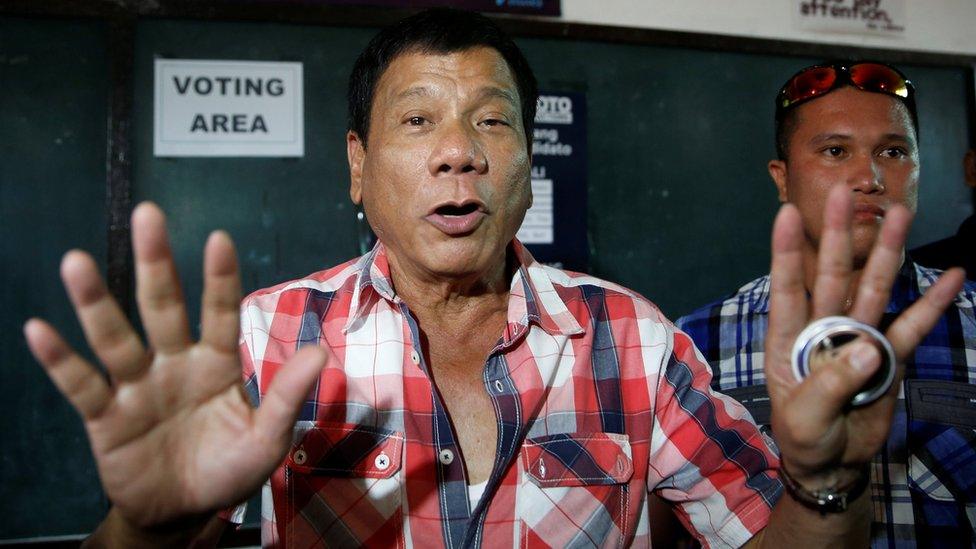
- Published26 August 2016
